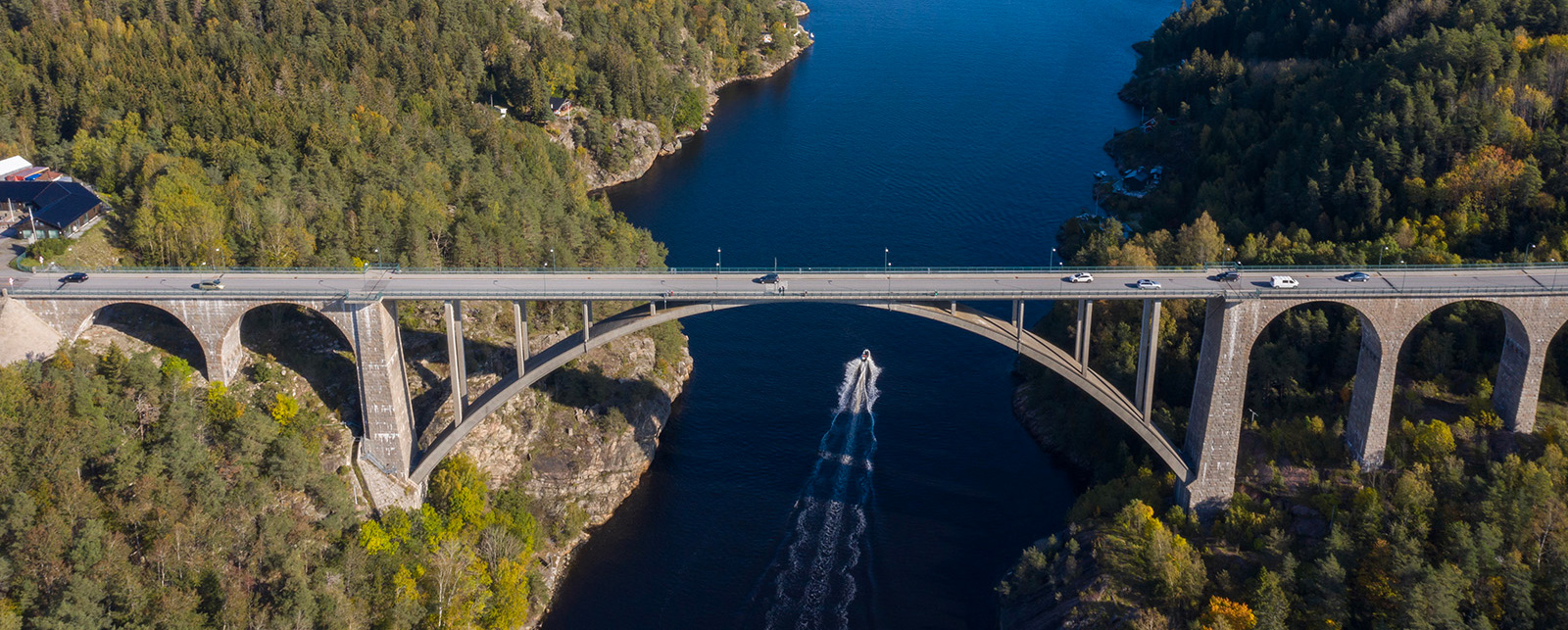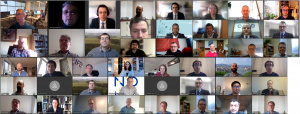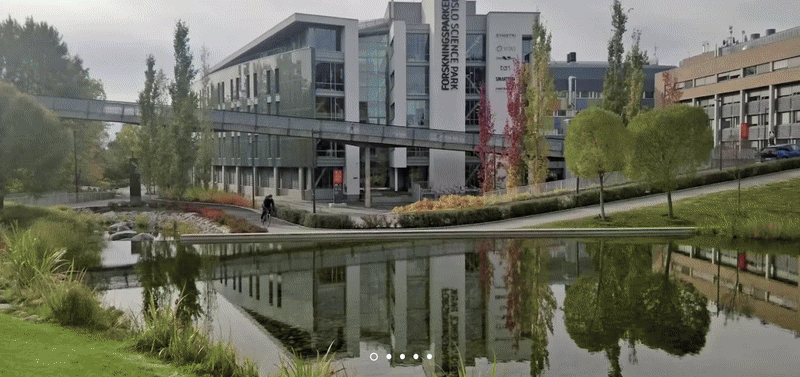Partners of the organizing committee:
Sponsor of DigiDecom 2021:
The webinar brought together a multidisciplinary international community for discussing experience from earlier applications, as well as opportunities for future applications of innovative technologies and methods in nuclear decommissioning, dismantling and waste management.
DigiDecom events are organized within the program related to IFE’s designation as an IAEA International Collaborating Centre
DigiDecom 2021 supported innovation projects within nuclear decommissioning
SHARE and PLEIADES Horizon 2020 projects

RoboDecom and LiveDecom Norwegian funded international projects
DigiDecom 2021 also supported the NEA’s EGRRS Expert Group on the application of Robotics and Remote-Systems in the nuclear back end
DigiDecom 2021 agenda
Some faces of DigiDecom 2021:
List of participants
Program with download links:
Keep an eye on this page. More material will be uploaded.
| Tuesday – 23 March: Innovation needs, solutions and initiatives | |
| Session 1: International landscape of innovation for nuclear decommissioning and waste management – introductory presentations from organizers and invited speakers
Chairs: Vladimir Michal and Christine Georges (CEA) |
|
| 1 | Patrick O’Sullivan (IAEA) IAEA perspectives and supported innovation initiatives |
| 2 | Dr. Taruta Yasuyoshi and Dr. Yukihiro Iguchi (JAEA, Japan) JAEA decommissioning status and its approach for the digitalization |
| 3 | István Szőke (IFE, Norway) International needs and opportunities for innovation |
| 4 | Erika Holt (VTT, Finland) Presentation of the PREDIS project on predisposal waste management |
| 5 | Martin Andreasson and Peter Keyser Decommissioning in Norway – foreseen challenges and related innovation needs |
| 6 | Caroline Chabal (CEA, France) and István Szőke (IFE, Norway) (presented by István Sz.) Overview presentation of the PLEIADES project on PLatform based on Emerging and Interoperable Applications for enhanced Decommissioning processes |
| 7 | Craig Nicol (OGTC, UK) Needs and trends for innovation of decommissioning in the Oil & Gas sector. |
| 8 | Anthony Banford (NNL, UK) Overview of the Sustainable Nuclear Energy Technology Platform (SNETP) |
| Session 2: Presentation of result from the “SHARE” EU project on a roadmap for decommissioning R&D priorities
Chairs: Christine Georges (CEA) and Patrick O’Sullivan (IAEA) |
|
| 1 | Christine Georges (CEA, France) Presentation of results from the “SHARE” EU project: a roadmap to enhance collaborative Research activities for Decommissioning |
| 2 | Gintautas Poškas (LEI, Lithuania) and Laura Aldave de las Heras (JRC) Analysis of results from stakeholders survey about importance and urgency of needs in Research for decommissioning |
| 3 | Anthony Banford (NNL, UK) Implementation of gap analysis between needs and existing solutions / international initiatives |
| Discussion of innovation needs and possible solutions
Group 1 Safety / radiological protection aspects, environmental remediation, and site release Moderators: Réka Szőke (IFE) and Anumaija Leskinen (VTT) Group 2 Project management, costing and human resource management Moderators: Fanny Fert (CEA) and Lucas Stephane (IFE) Group 3 Characterization Moderators: Laura Aldave de las Heras (JRC) and Kurt van den Dungen (SCK-CEN) Group 4 Site preparatory activities and Technologies for dismantling operations Moderators: Junaid Chaudhry (KIT) and Federica Pancotti (SOGIN) Group 5 Management of materials and waste from decommissioning Moderators: Anthony Banford (NNL)and Christine Georges (CEA) |
|
| Short summaries from the group discussions presented in Plenary by the Moderators (5 min each) & Plenary Discussion | |
| Wednesday – 24 March: Innovation needs, solutions and initiatives related to digital transformation of decommissioning and waste management
Chairs: Erika Holt (VTT) and Ole Jakob Ottestad (NND) |
|
| 1 | Ole Jakob Ottestad (NND, Norway) NND on a journey towards digital decommissioning and waste management |
| 2 | István Szőke (IFE, Norway) Digital transformation of decommissioning |
| 3 | Filip Vanhavere and Pasquale Lombardo (SCK-CEN, Belgium) Computational personal dosimetry using flexible phantoms and staff tracking: possible applications in decommissioning |
| 4 | Franz Borrmann (iUS, Germany) Towards an international nuclear decommissioning ontology – Results from work in PLEIADES and co-operation among IAEA collaborating centres |
| 5 | Dusan Daniska (WAI – Aquila Costing, Slovakia) Technical aspects of digital integrated decommissioning support systems and prospects with ISDC (International Structure for Decommissioning Costing of Nuclear Installations) based costing |
| 6 | Paola Ontiveros (Cyclife Digital Solutions, France) 3D Digital Simulation of complex D&D projects – Use case: Chinon A2 dismantling project |
| 7 | Dag Fjeld Edvardsen et. al. (Catenda, Norway) How BIM is used in the construction industry – prospects for use in nuclear decommissioning |
| 8 | Patrice François (IRSN, France) Digital transformation – A TSO point of view |
| 9 | Malgorzata Sneve (DSA, Norway) How digital models and simulation are used by the Norwegian and Russian regulatory bodies in legacy management |
| 10 | Jere Luukkanen and Miko Olkkonen (Fortum Power and Heat Oy, eSite) Up-to-date view of the site improves project performance – user study of Fortum’s eSiteview in decommissioning |
| 11 | Ernst Niederleithinger (BAM, Germany) Towards digital tools for waste package and facility monitoring and prediction |
| 12 | Burcin Okyar (IAEA) A new IAEA Technical Document on Occupational Radiation Protection in Decommissioning of Nuclear Installations – Main Aspects of Management, Planning and Conduct |
| Discussion of innovation needs and possible solutions related to digital transformation of decommissioning
Group 1 Regulatory/TSO aspects for use of BIM based of modular integrated software systems Moderators: Patrice Francois and Malgorzata Sneve Group 2 Technical barriers and needs for implementation of BIM based modular integrated software systems Moderators: Dušan Daniška, Dag Fjeld Edvardsen and Ole Jakob Ottestad Group 3 Human and organisational barriers and needs for implementation of BIM and digital twin based support systems for decommissioning and waste management Moderators: Erika Holt, Martin Andreasson and José Antonio R Cabrerizo (KIT) Group 4 International nuclear decommissioning ontology Moderators: Franz Borrmann and Maarten Becker (iUS) Group 5 Use of digital models and simulations for international knowledge exchange Moderators: Patrick O’Sullivan and István Szőke |
|
| Short summaries from the group discussions presented in Plenary by the Moderators (5 min each) & Plenary Discussion | |
| Thursday – 25 March: Innovation needs, solutions and initiatives related to digitalisation as well as robotics and remote systems in decommissioning
Chairs: Vladimir Lebedev (NEA) and Martin Brandauer (NEA) |
|
| 1 | Rustam Stolkin (University of Birmingham and NEA-EGRRS Chair, UK) Robotics and Remote Systems applications in the Decommissioning and Radioactive Waste Management – The NEA EGRRS (Expert Group on the application of Robotics and Remote-Systems in the nuclear back end) |
| 2 | Matt Mellor (CREATEC, UK) Robotics and 3D gamma mapping technologies for supporting nuclear decommissioning |
| 3 | István Szőke (IFE, Norway) Digital innovation for robotics applications in decommissioning |
| 4 | Nasser Ukla (IFE), Tomas Henninge (nLink), Bernt Øivind Børnich/ Egil Utheim (Halodi robotics) (Norway) Modular unmanned and humanoid robot platform based technology – prospects for application in nuclear decommissioning Halodi_Security_Short (vimeo.com) |
| 5 | Leonel Lagos (FIU, US) Robotics research and applications by Florida International University (FIU) |
| 6 | Norbert Molitor (PLEJADES GmbH, Germany), Valeriy Seyda, Sergiy Kondratenko (Chernobyl NPP, Ukraine) and Cécile Javelle (PLEJADES GmbH, Germany) The use of Robotics and Remote Equipment in International Projects implemented at Chornobyl NPP |
| 7 | Eduard Nikitin (ROSATOM, Russian Federation) and Norbert Molitor (PLEJADES GmbH, Germany) Economic drivers for robotic and remote systems in decommissioning (including FREMES example) |
| 8 | Ladislav Vargovcik, Jozef Varga and Jan Semjon (TUKE, Slovak Republic) Robotic fragmentation of large equipment at decommissioning of NPPs |
| Discussion of innovation needs and possible solutions related to robotics applications in decommissioning
Each moderator will provide a short teaser presentation within their group Group 1 Implementation barriers based on experience with application of robotics Moderators: Rick Reid (EPRI), Leonel Lagos and Laurent Velnom (EC) Group 2 Safety and security requirements for robotics applications in decommissioning Moderators: Michael Knaack, Matthias Schoepfer (TüV Nord) Group 3 Digitalisation and robotics – how can they strengthen/enable each other? Moderators: Rustam Stolkin, István Szőke and Matt Mellor Group 4 Economic benefit drivers for robotics applications in the nuclear Moderators: Eduard Nikitin and Norbert Molitor |
|
| Short summaries from the group discussions presented in Plenary by the Moderators (5 min each) & Plenary Discussion | |
Contact us at: digidecom@ife.no
DigiDecom 2021 flyer pdf
See also





